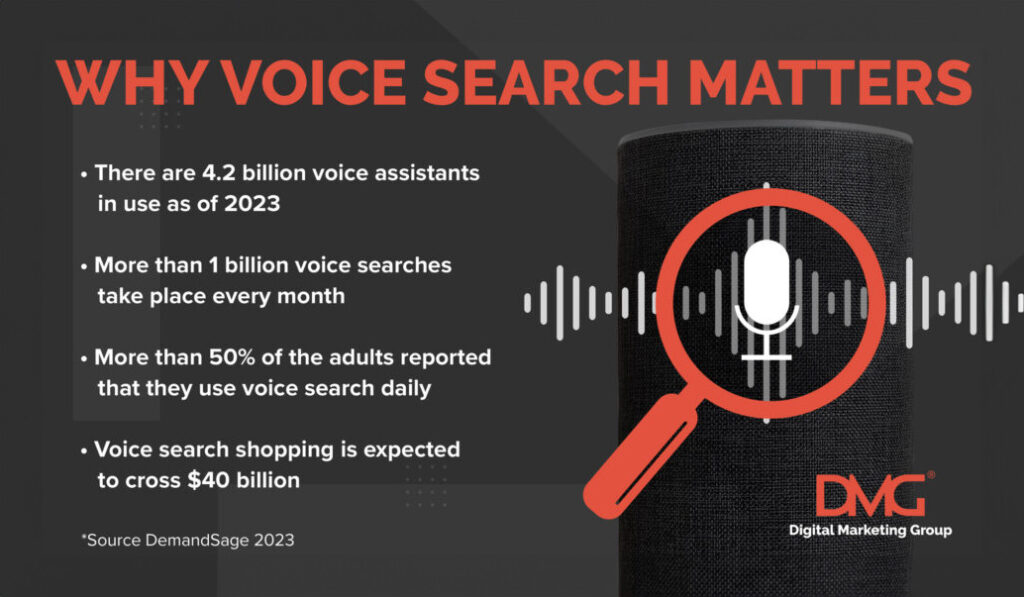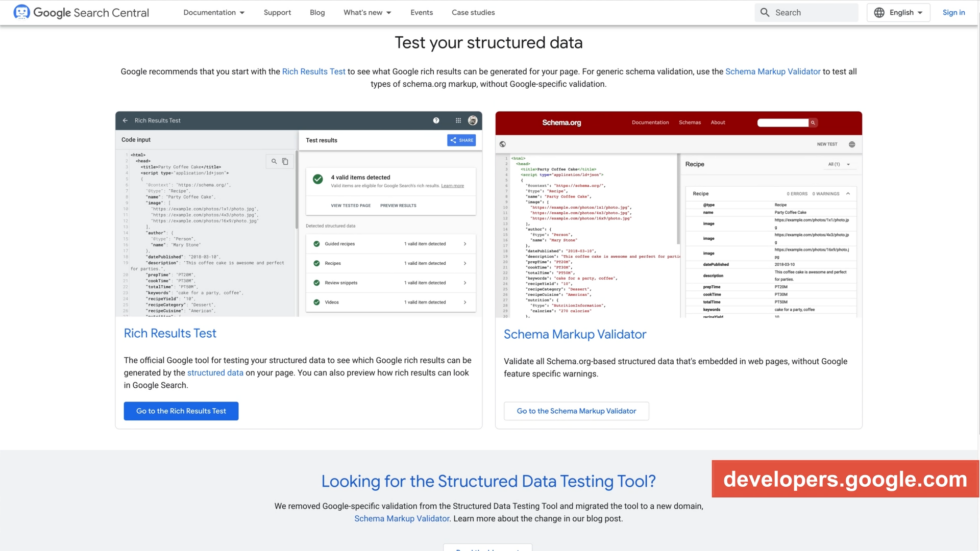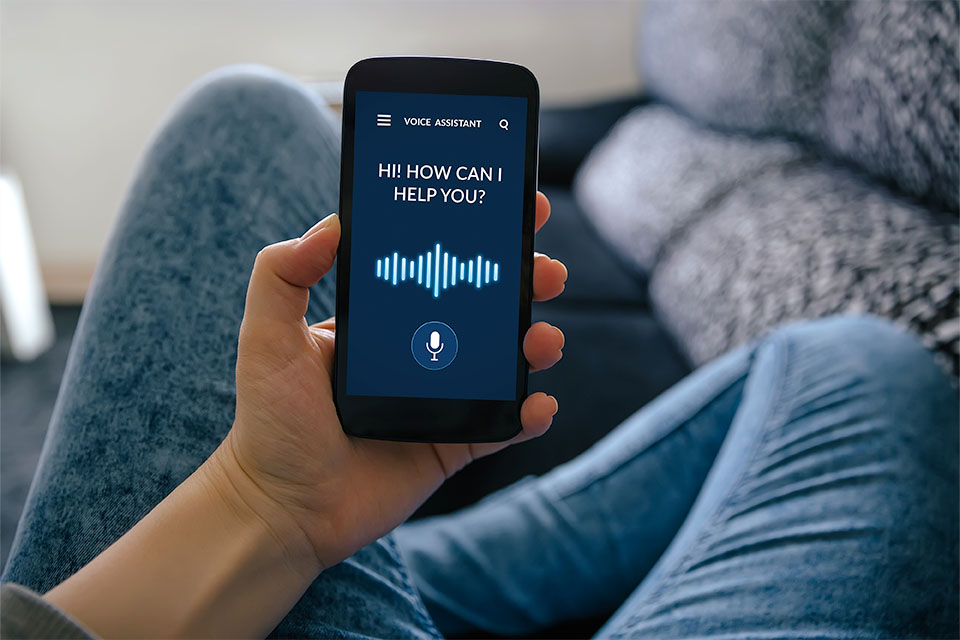In the ever-evolving landscape of digital marketing, staying ahead of the curve is essential for businesses looking to maintain a competitive edge. One significant shift in recent years that demands attention is the rise of voice search. It is important to understand how to optimize your website for voice search and the numerous benefits it offers to businesses.
If you think about popular holiday gifts each season, technology is always at the top of the list. Voice assistants like Siri and Alexa have become household names. But what does this have to do with your business and website? Everything.
Voice Assistants Are Changing the Way We Search
Often, when we want to search for something online, we type it into a search bar. However, it has become much easier than that. With the explosion of voice assistants, we’re now conversing with our devices, asking questions in a more natural and conversational way. With this, voice search has made it easier when it comes to searching online.
Why Voice Search Matters
More than 50% of adults reported they use voice search daily. As of 2023, there are 4.2 billion voice assistants in use, and this number will reach 8.4 billion by 2024.
The trend is clear: the smaller and more portable our devices become, the more we embrace voice search as a convenient mode of interaction. As smart assistants expand beyond smartphones and integrate into our homes, offices, and even cars, voice search is rapidly becoming a dominant search method.

The Impact of Voice Queries on Search
Understanding how voice search differs from traditional text-based queries is crucial for businesses. When we type, we often start with broad search terms and refine them as we go. However, voice search tends to be more immediate and location-based. People ask specific questions and expect immediate answers. You want those answers to easily be pulled from your website.
Dig Deeper
How To Lead Website Visitors To Your Content
Do Your Landing Pages Do All This?
Optimizing for Voice Search
Now, let’s discuss how you can optimize your website to capitalize on the rise of voice search:
Monitor Natural Language Queries
Keep a close eye on the natural language queries in your search analytics. Voice search encourages users to ask questions more conversationally, so understanding how they phrase these questions can help you tailor your content.
Think Conversationally
Instead of focusing only on keywords, think about how your audience might ask questions verbally. Transform your keyword strategy into a conversational approach. For instance, “best water heater” could become “What’s the best water heater for a home with four people?”
Meet User Expectations
Ensure that your website provides detailed content that answers common questions users may have. Voice search users expect immediate and relevant information, so be sure your website is optimized, allowing for fast load time and easy access. Utilize Schema Markups for Content Identification
Schema markup, also known as structured data markup, plays a crucial role in voice search. When a user asks a voice assistant a question, structured data helps the assistant identify and extract relevant information from web pages more accurately. Use Google’s free tool here to test your structured data on your website.

Embrace Voice Search Technology
To truly grasp the potential of voice search, use voice assistants like Amazon Echo or Google Home in your daily activities. This will not only enhance your natural language query skills but also will provide insights into how people search and what can improve your site’s visibility.
The Future of Voice Search
As with any emerging technology, voice search is still evolving. Just as Google refined its search algorithms over time, businesses must adapt their content and strategies to the changing landscape. Doing so will not only benefit your business but also enhance the user experience, making your prospects and clients thank you.
Optimizing your website for voice search is no longer an option but a necessity. The benefits are clear: increased visibility, improved user experience, and staying ahead in the ever-competitive digital marketplace. So, take the plunge into voice search optimization, and watch your business thrive in this new era of search.




